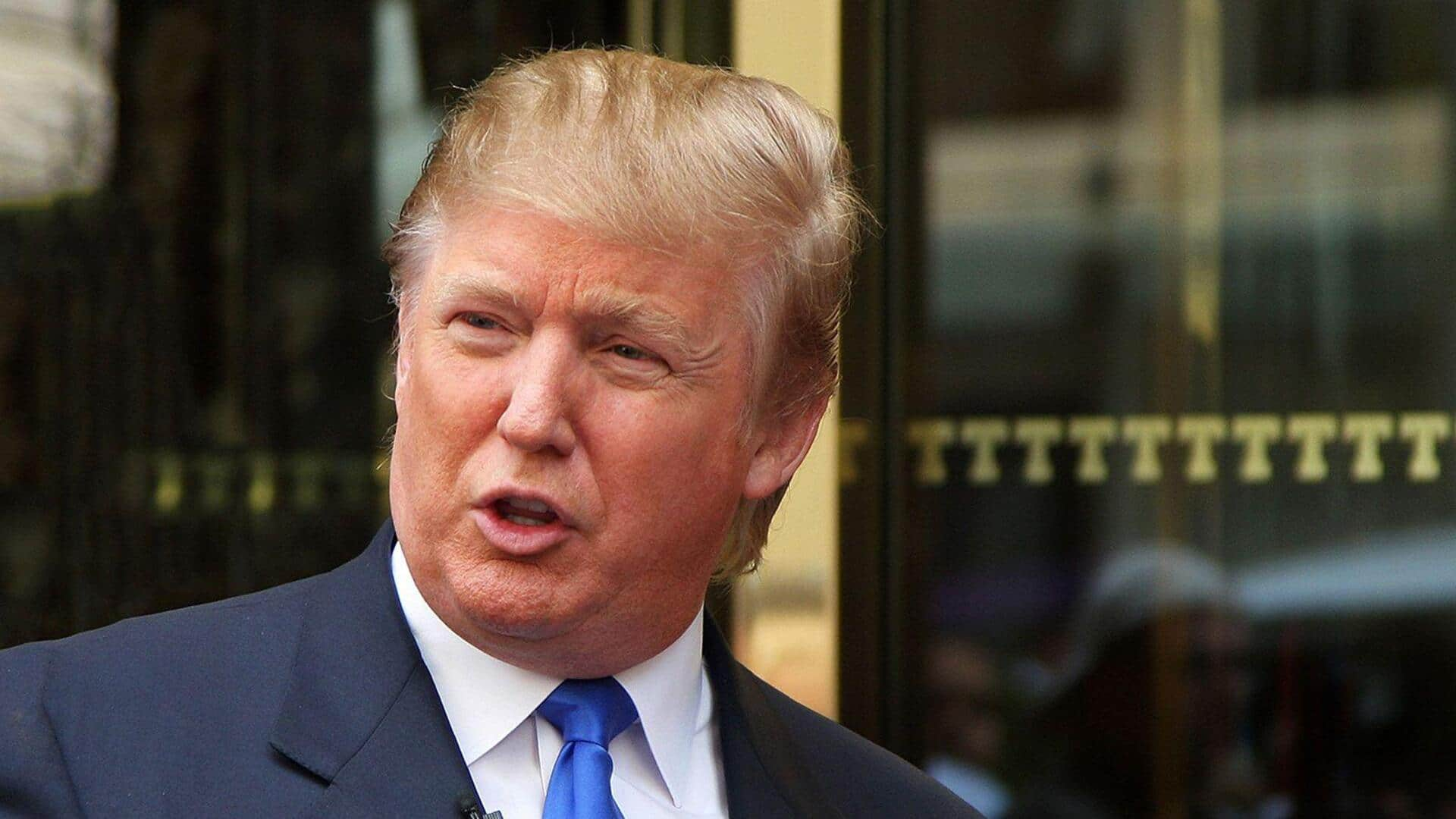
'Hollywood dying': Trump imposes 100% tariff on non-US movies
What's the story
United States President Donald Trump has announced a 100% tariff on all foreign-made films. He accused other nations of undermining Hollywood and using cinema as a propaganda tool. The dramatic announcement came via his Truth Social account, where he called the American movie industry "DYING a very fast death." He further claimed that "other Countries are offering all sorts of incentives to draw our filmmakers and studios away from the United States."
National security
Trump labels foreign influence as 'national security threat'
Trump called Hollywood's fall a "concerted effort by other Nations and, therefore, a National Security threat." He went on to call it "messaging and propaganda!" To combat this threat, he has now directed the Department of Commerce and US Trade Representative to start the process of levying tariffs on all movies made outside America. He ended his announcement with a strong, "WE WANT MOVIES MADE IN AMERICA, AGAIN!"
Trade barriers
Non-tariff trade barriers and their impact on US filmmakers
The US Trade Representative (USTR) has noted that non-tariff trade barriers like regulations and foreign tax incentives might put US filmmakers at a disadvantage. Several foreign cities provide generous tax breaks in order to woo film and TV productions, resulting in a trend toward Toronto and Dublin. In response, California Governor Gavin Newsom has offered an extensive tax credit to revive Hollywood production.
Economic impact
Impact on US economy and global trade relations
The tariff announcement is another feather in Trump's cap of controversial trade policies that have already shaken up the global economy. Since coming back to power, he has levied tariffs on an extensive range of imports, including a whopping 145% on Chinese goods. China retaliated by slapping a 125% tariff on American exports, igniting a trade war that has upended global supply chains and increased fears of recession.
Economic downturn
US GDP contracts amid trade tensions
US economic data published last week showed a 0.3% contraction in GDP in Q1 of 2025, with imports and consumer spending sharply down. Ocean container bookings from China have crashed 60%, forcing shipping firms to cancel up to a quarter of sailings. At the Port of Los Angeles, arrivals are set to decline 35% as businesses stop orders amid tariff ambiguity. Economists blame Trump's erratic trade tactics for the instability.
Confusion
Foreign leaders complain of lack of communication
Foreign leaders express confusion and poor communication, despite claims of negotiating "privileged" deals with countries such as Switzerland, South Korea, and Japan. Josh Lipsky of the Atlantic Council said, "There's not a coherent strategy." "They don't understand completely what the White House wants, nor who they should be dealing with," he added.